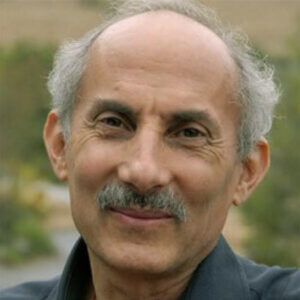As desire abates, generosity is born. When we are present and connected, what else is there to do but give? An African proverb put it this way: “It is the heart that gives, the fingers just let go.” When someone in our family is hungry or in difficulty, we naturally want to help. When the heart is freed from grasping, our family grows. The people we meet are our uncles and aunties, our grandparents and our cousins. The animal brothers and sisters are our siblings. We sense our interdependence with all beings.
In the abundant heart, our sense of welfare expands. The Iowa corn farmer whose corn always took first prize at the state fair had the habit of sharing the best seed corn with all the farmers in the neighborhood. When asked why, he said, “It’s really a matter of self-interest. The wind picks up the pollen and carries it from field to field. So if my neighbors grow inferior corn, the cross pollination brings down the quality of my own corn. That is why I am concerned that they plant only the very best.”
To reawaken our sense of abundance, Buddhist psychology offers deliberate trainings and practices to cultivate generosity as a joyful way of being. There are daily practices of giving, vows of dedication to service, visualizations of our devotion to the welfare of all. These are repeated until in the end there is no notion of separation, neither giver nor receiver. We are all the Buddha feeding ourselves.
Paul was a retired banker at loose ends whose Buddhist teacher suggested that he develop the path of service. Paul began to help at the temple, on committees, and at the community hospice. His life had been dedicated to success and self-importance, but as he began to serve others his self-interest faded, his unconscious fears passed. His work at the hospice taught him that what mattered was love. People who at first had been put off by his brusqueness and arrogance began to enjoy his presence. As he devoted himself to service, his heart mellowed like a good wine.
These generosity practices are not a way to become “good,” but a way to become happy. We do not have to work at a hospice or an emergency room to serve. Sometimes our generosity is the giving of a smile, silence, listening, warm touch. Sometimes it involves action, time, money, our commitment to justice, our vision for a better world. Every form of giving is a blessing.
From: The Wise Heart: A Guide to the Universal Teachings of Buddhist Psychology, p. 201-2
 |
Jack Kornfield trained as a Buddhist monk in the monasteries of Thailand, India and Burma. He has taught meditation internationally since 1974 and is one of the key teachers to introduce Buddhist mindfulness practice to the West. After graduating from Dartmouth College in Asian Studies in 1967 he joined the Peace Corps and worked on tropical medicine teams in the Mekong River valley. He met and studied as a monk under the Buddhist master Ven. Ajahn Chah, as well as the Ven. Mahasi Sayadaw of Burma… READ MORE |
